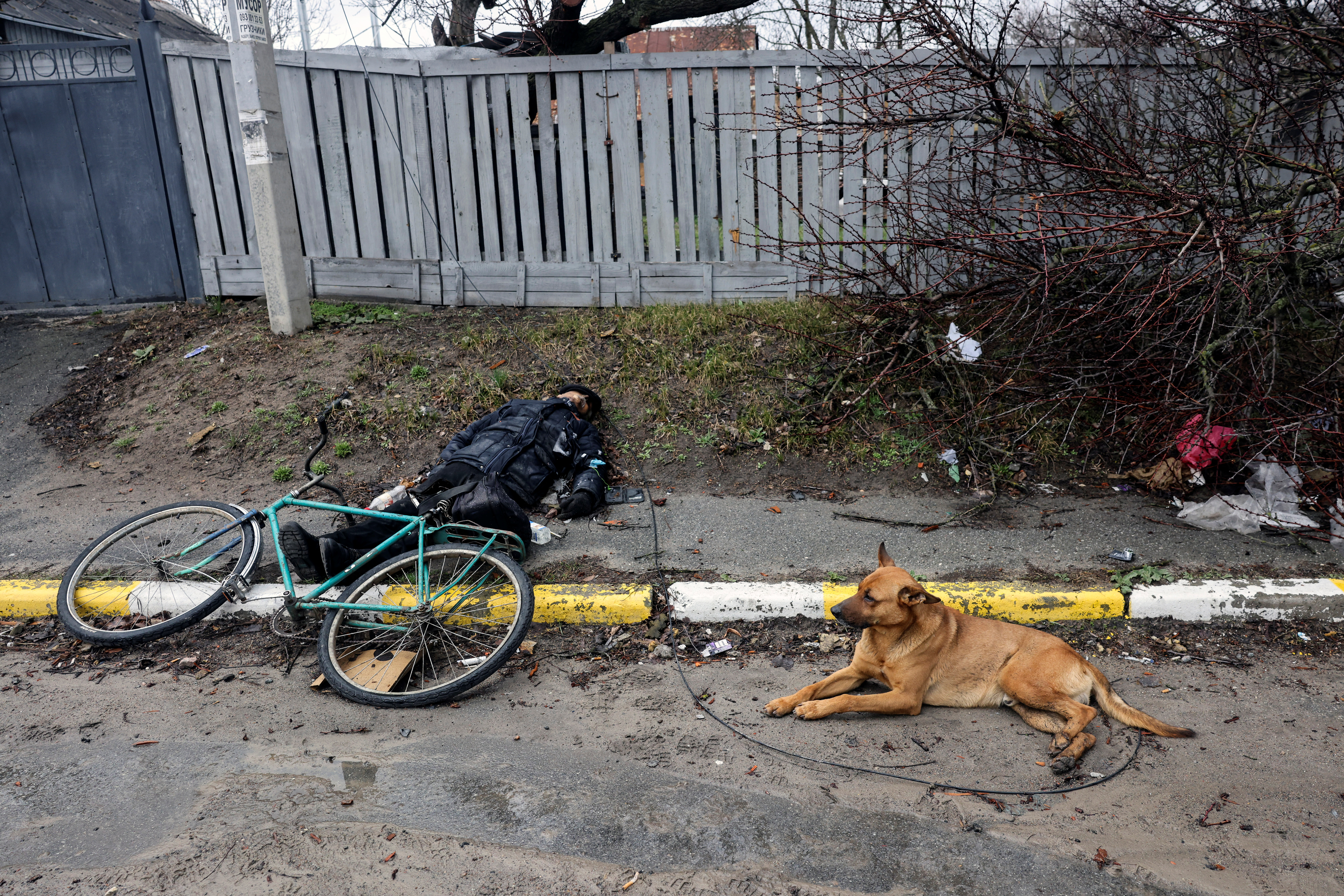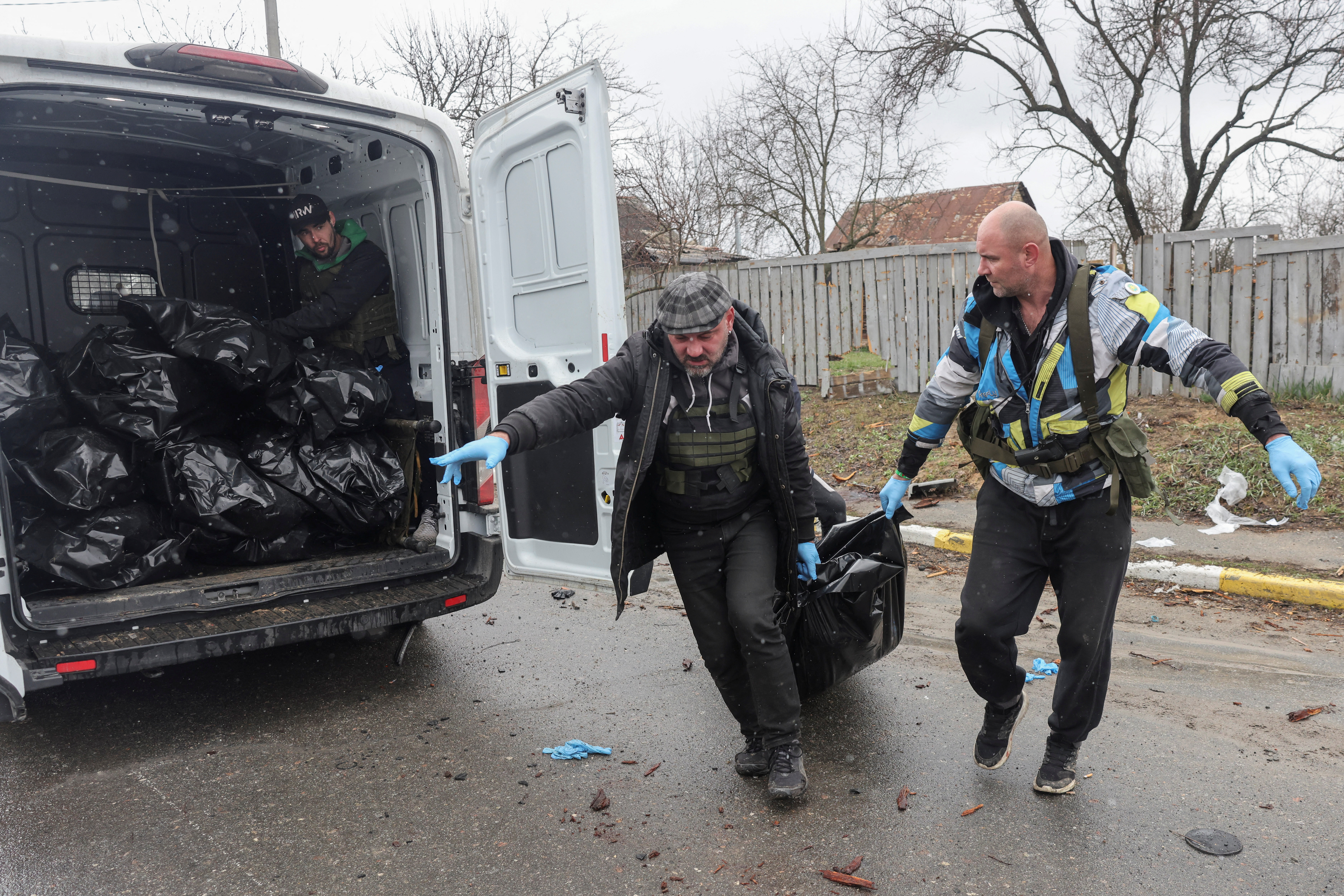The Ukrainian Attorney General's Office on Sunday estimated at 410 the number of bodies of civilians recovered so far in the northern suburbs of Kiev following the withdrawal of Russian troops.
“410 bodies of murdered civilians have so far been removed from the territory of the Kiev region,” Attorney General Iryna Venediktova announced in a Facebook post, according to the Ukrinform agency.
“Prosecutors and other specialists have so far examined 140 of them,” he added, explaining that investigators are cooperating with the local population in search of witnesses, victims and graphic evidence such as photos or videos.
“People are scared, tired and tormented, they have experienced horror,” Venediktova wrote, specifying that it will take “time and a professional approach” to document everything correctly and not miss the opportunity to punish those responsible.
This Sunday, the Ukrainian Foreign Minister, Dmytro Kuleba, had announced that, although the search and collection of bodies in Bucha and the rest of the northern suburbs of Kiev that were under Russian control is still ongoing, “hundreds” of bodies have already been found.

Kuleba added that it has asked the International Criminal Court (ICC) to send a fact-finding mission to document and prosecute the atrocities committed.
According to the Ukrainian Government, according to media images, the bodies of the victims are wearing civilian clothes and many of them are tied up and appear to have been shot to the head.
The mayor of Bucha announced yesterday that, following the withdrawal of Russian troops on 31 March, local authorities have buried some 280 bodies in a mass grave because they could not use the municipal cemetery for this purpose.
The images of the streets of Bucha strewn with bodies have caused consternation in Europe and have been condemned by European leaders, who have called for an investigation of possible war crimes by Russia.
The head of US diplomacy, Antony Blinken, said on Sunday that the vision of multiple civilian bodies scattered on the streets of Bucha, in Ukraine, is “a punch in the stomach.”

“You can't help but see these images as a punch in the stomach,” Blinken told CNN a day after horrific images of Bucha, a Ukrainian city recovered from Russian forces, spread.
“This will be the daily reality as long as Russia's brutality against Ukraine continues,” he added.
For his part, NATO Secretary General Jens Stoltenberg said that the murders of civilians in Bucha are “horrible”.
“It's a brutality against civilians that we haven't seen in Europe for decades, and it's horrible and absolutely unacceptable,” Stoltenberg also told CNN.
Earlier, the head of the European Union, Charles Michel, promised more sanctions against Moscow by condemning the “atrocities” carried out by the Russian forces outside the capital of Ukraine, Kiev.
“Shocked by the disturbing images of the atrocities committed by the Russian army in the liberated region of Kiev #BuchaMassacre,” the head of the European Council, Michel, wrote on Twitter. “The EU is helping Ukraine and NGOs gather the evidence necessary for their prosecution in international courts,” he said.
(With information from EFE)
KEEP READING:
Últimas Noticias
Debanhi Escobar: they secured the motel where she was found lifeless in a cistern
Members of the Specialized Prosecutor's Office in Nuevo León secured the Nueva Castilla Motel as part of the investigations into the case

The oldest person in the world died at the age of 119
Kane Tanaka lived in Japan. She was born six months earlier than George Orwell, the same year that the Wright brothers first flew, and Marie Curie became the first woman to win a Nobel Prize

Macabre find in CDMX: they left a body bagged and tied in a taxi
The body was left in the back seats of the car. It was covered with black bags and tied with industrial tape
The eagles of America will face Manchester City in a duel of legends. Here are the details
The top Mexican football champion will play a match with Pep Guardiola's squad in the Lone Star Cup

Why is it good to bring dogs out to know the world when they are puppies
A so-called protection against the spread of diseases threatens the integral development of dogs




